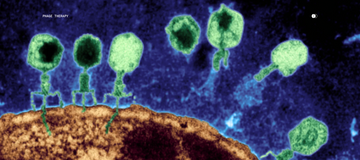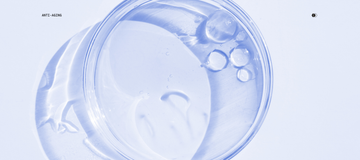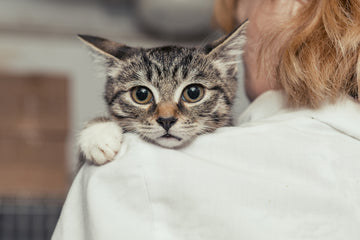Is Your Pet’s Infection Antibiotic-Resistant? Research Suggests Phages as the Next Step.
by Parallel Health Team
In a breakthrough for veterinary medicine, a Siamese cat named Squeaks, suffering from a severe infection that resisted multiple antibiotics, was successfully treated using an innovative combination of phage therapy and antibiotics. After falling from a high-rise and undergoing several surgeries, Squeaks developed a stubborn infection in her leg that conventional treatments couldn't cure. Her veterinary team decided to try a new approach: they used a bacteriophage, a microbe that specifically targets bacteria, combined with the antibiotic ceftazidime.
Phages, often called “nature’s bacteria killers,” are nano-microbes that infect and destroy specific bacteria. In this case, a phage was selected for its ability to attack the particular strain of Pseudomonas aeruginosa causing Squeaks’ infection. The phage was applied directly to the wound, and the antibiotic was administered through injections. Remarkably, this combination not only stopped the infection, but also healed the wound that had been open for months.
This case is significant for several reasons.
First, it marks the first documented use of personalized phage therapy in veterinary medicine, showing that what was once considered an experimental treatment can be applied effectively in real-world settings. Second, it demonstrates the power of phage therapy to work where antibiotics alone fail. As antibiotic resistance becomes a growing problem, phage therapy offers a promising alternative that could be crucial in the future of medicine–for both humans and animals.
The successful treatment of Squeaks also shows the practical side of phage therapy; it was easy enough for the cat’s owners to administer at home, under veterinary guidance. This suggests that phage therapy could be a viable option not just in clinical settings but also for home care, making it more accessible and convenient for pet owners.
As phage therapy gains more recognition and acceptance, its potential to revolutionize infection treatment in both animals and humans becomes clearer. This case paves the way for broader use of phages, offering hope for more effective treatments against antibiotic-resistant bacteria. The success with Squeaks is just the beginning; as research and application expand, phage therapy could become a key player in the fight against one of the most pressing challenges in modern medicine.
Want phages for your pet?
If you’re interested in exploring phage therapy or skin microbiome tests for your pet, join Parallel’s waitlist here.



























